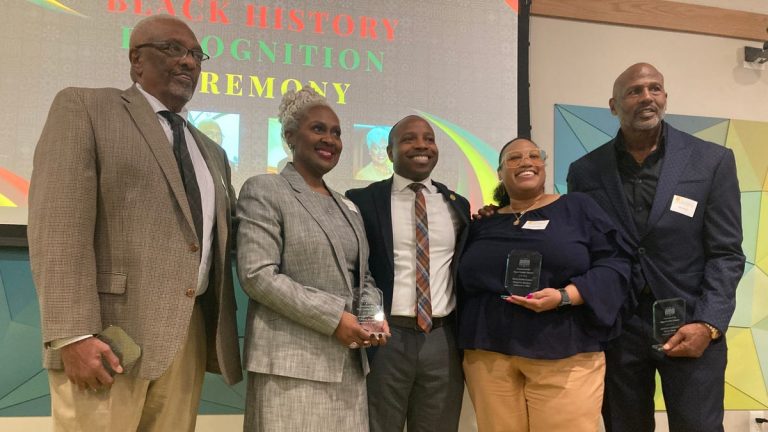Black History Month’s historical origins explained
Here’s why the founder Carter G. Woodson created Black History Month and how it’s different today than he originally planned.
Just the FAQs, USA TODAY
Mayor Cavalier Johnson celebrated the start of Black History Month on Monday by honoring four Milwaukee residents who’ve had a powerful impact on the city.
Johnson presented honors for outstanding citizen, education advocate, minority business champion and charitable giving.
The honorees are Christy Brown, the first Black woman to lead Alverno College; Donald Jackson, who rose through the ranks of the Milwaukee Fire Department to be the first Black assistant fire chief; Marjorie Rucker, an executive who advocates for minority businesses; and businessman Mark Wade, former president of the African World Festival Board.
“All these folks are trailblazers and do amazing work each and every single day,” Johnson said.
This is the third year for the mayor’s Black History Recognition celebration, held at Bader Philanthropies, 3300 N. King Drive. The event comes at a time when the new Trump administration has attacked diversity, equity and inclusivity programs, prompting some federal agencies to curtail cultural awareness programs, including Black History Month.
Johnson said Black history can’t be erased, even though some will try.
“Black history is American history,” Johnson said. “We have … made an incredible impact on the trajectory of the United States. So that is why it is important to always, always acknowledge it, not even just the historical figures from the past but also the individuals who are making a difference each and every single day in communities like Milwaukee across our country.”
Rucker is one of those individuals making a difference. She received the minority business champion award for her commitment to community and economic development. She’s the executive director of The Business Council, which promotes supplier diversity in procuring goods and services. She’s also chair of the Ethnic and Diverse Business Coalition, which advocates for policies supporting the business community.
Many see supplier diversity or set-asides as preferential treatment, but it’s not, Rucker said. Those businesses, she said, can compete and are well-qualified to do the job. They just want an even playing field without bias — whether unconscious or otherwise — to offer their goods and services.
“Without us, this country would not be where it is today, even if it is not perfect,” Rucker said. “If we really know our history and appreciate the contributions of African Americans, it doesn’t necessarily matter if a presidential administration tries to come in and shut that down. We are still going to rise, whether they want to acknowledge that or not.”
Jackson received recognition for being an outstanding citizen. He was the first Black promoted within the ranks of the fire department, serving as fire captain, battalion chief, deputy chief and assistant chief.
Jackson is best-known for teaching young people to swim. He was a swim coach at Brown Deer’s Walter Schroeder Aquatic Center until 2020. Now he works with students through the North Division High School Alumni Association.
He helps the school’s swim program and is part of MPS’ Black and Latino Male Achievement mentoring program. The award, he said, serves as an inspiration to youth that life can be tough, but rewarding.
“Our kids really need it,” Jackson said of mentoring. “They need to see Black and Latino men at their schools — somebody who has been through something, who’s been through life. So, they know you are not the only one going through this. I’ve been through this already.”
Brown was recognized as a champion for education. Brown’s hiring at Alverno College shattered a glass ceiling for the school — and for the region. She’s among a handful of Black women who have led southeastern Wisconsin colleges. Among them are Barbara Holmes, who was at the helm of Milwaukee Area Technical College in the 1990s, and Eleanor Smith at UW-Parkside from 1994 to 1997.
Brown said her achievements came from others before her.
“I am standing on the shoulders of others in our history, like the honorable (Chief Judge) Carl Ashley, the honorable Vel Phillips and the venerable Lloyd Barbee,” she said.
She, too, noted the challenging times facing the country, especially around justice, equity, inclusion, diversity and even access.
“I am hopeful that we live in a world that is appreciative of our differences and celebrates all of us for all of our contributions that we’ve made to our community,” she said.
Johnson praised Wade’s community contributions.
“Mark Wade has been an incredible leader,” he said, “in not just business in the African American community but also in giving back and showing the importance of doing that.”




